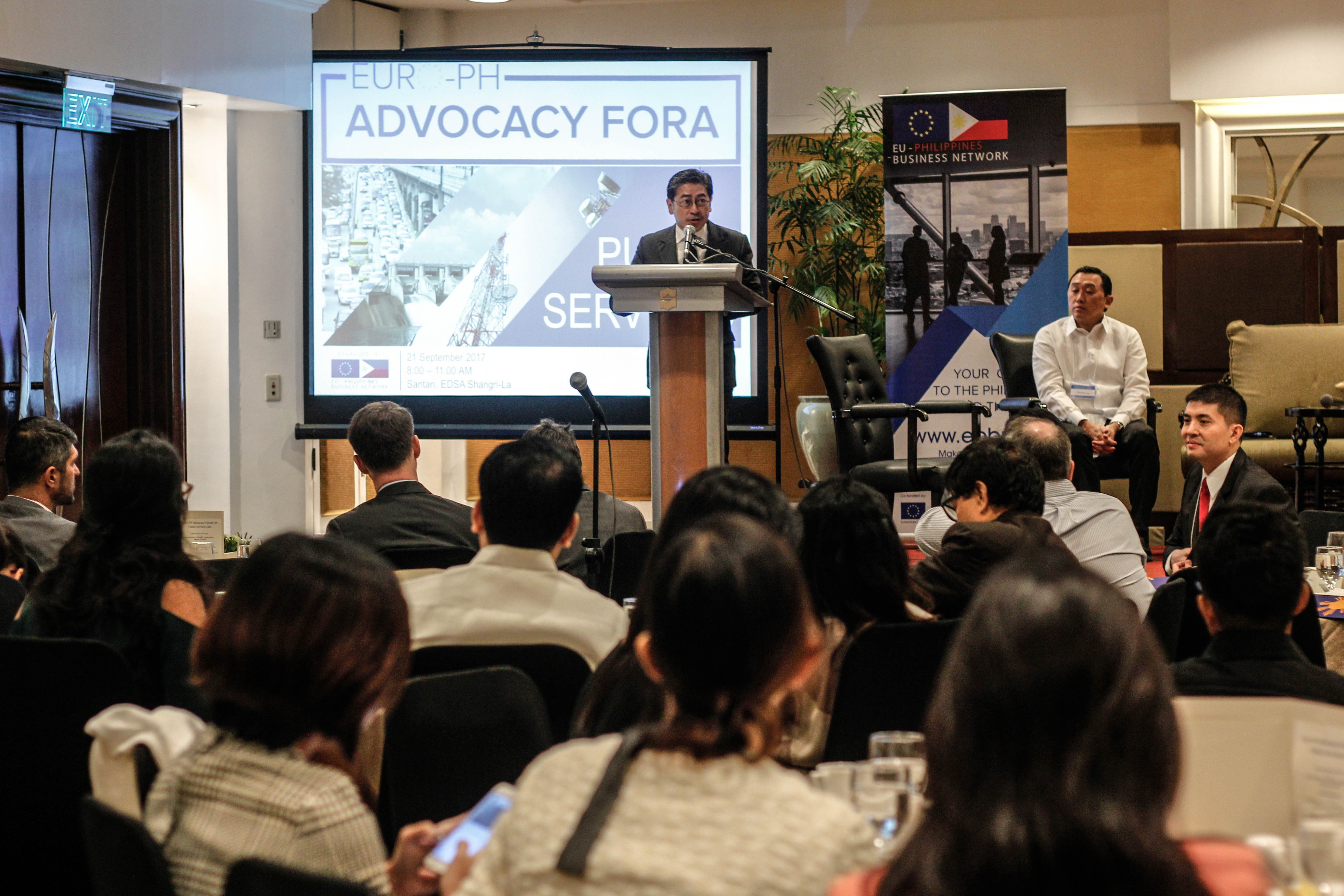
The Euro-PH Advocacy Forum on Public Services was held on September 21, 2017 in the Santan Room at EDSA Shangri-la Hotel Manila. The forum tackled the concept of “public” utilities as presented in the original Public Service Act (PSA) of 1936 and amended in the newly proposed House Bill 5828, which provides a statutory definition of public utility. Given the limited choices of the public when it comes to basic and public services, the bill proposes to lift foreign restrictions to pave the way for greater economic competition in e-commerce, telecommunications, transport, and energy without changing the constitution. The bill also aims to improve public services which can greatly impact the quality of the lives of Filipinos as well as encourage and facilitate innovation in the public and private sector.
Welcoming remarks were delivered by Florian Gottein, Executive Director of the European Chamber of Commerce of the Philippines. Present at the forum were Congressman Arthur Yap, DoTr Asec Leah Merida-Quiambao, Foundation for Economic Freedom President Calixto Chikiamco, Smart Inc. Head of Regulatory Affairs and Sun Cellular Head of Legal and Regulatory Affairs Atty. Roy Ibay, UP College of Law Professor Dr. Joseph Angeles, and Independent Journalist James Deakin. The Forum was moderated by Abad Alcantara and Associates Partner and Bloomberg Anchor, Atty. Tony Abad.
Opening Speaker Walter van Hattum, Head of Economic and Trade Section of the European Union Delegation in Manila, shares “Filipino consumers are now more critical of the products they get as well as the quality and prices.”
Through the House Bill 5258, a high level growth would encourage a clearer distribution of public utilities without compromising the prices of services offered. Currently, 70% of the Philippines’ GDP and the country’s workforce are dependent on public services where 5% of the workforce are in the public service sector. With an ambiguous definition of ‘public utility’ under the Commonwealth Act, various growth opportunities are restricted including investments from foreign organizations. However, the European Union remains the largest source of investment in the Philippines with 25% of all new investments.
The forum stressed that taking the initiative to start screening incoming investments would create more jobs and develop existing technology for Philippine economic growth. Although, it is also important to consider imposing and regulating environmental standards while ensuring economic growth.
For more information on upcoming Euro-PH Advocacy Fora, e-mail info@eccp.com.